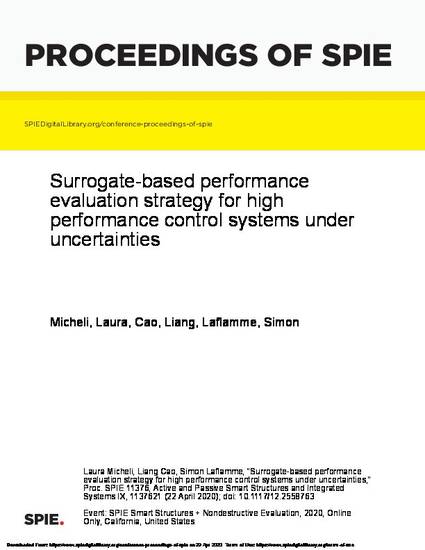
High-performance control systems (HPCSs) are sophisticated vibration mitigation strategies that include active, semi-active and hybrid systems. They generally outperform passive supplemental damping systems by relying on a feedback mechanism enabling adaptability, resulting in better control reachability over a wide excitation frequency bandwidth. HPCSs are therefore ideal for multi-hazard mitigation. However, the performance of these systems is highly dependent on the controller design, which requires appropriate tuning based on assumptions or on knowledge of dynamic parameters, long-term performance of sensors, excitations, etc. The quantification of performance based on possible uncertainties on such assumptions and/or knowledge could be a powerful tool in financially or technically justifying the use of an HPCS, or simply to benchmark the long-term performance of a given control algorithm. This paper investigates a methodology to assess the performance of control algorithms under various sources of uncertainties. To reduce the computational demand of the uncertainty quantification process, surrogate models are employed to map the nonlinear relationship between structural response and controller configurations. Long-term performance is quantified using life-cycle cost analysis. The investigation is conducted on a 39-story building, located in Boston (MA), and equipped with a set of semi-active friction devices. Results demonstrate that the proposed framework can be used to assess the performance of a given control algorithm considering various sources of uncertainties.
Available at: http://works.bepress.com/simon_laflamme/123/

This proceeding is published as Micheli, Laura, Liang Cao, and Simon Laflamme. "Surrogate-based performance evaluation strategy for high performance control systems under uncertainties." In Active and Passive Smart Structures and Integrated Systems IX, 11376 (2020):1137621. DOI: 10.1117/12.2558763. Posted with permission.